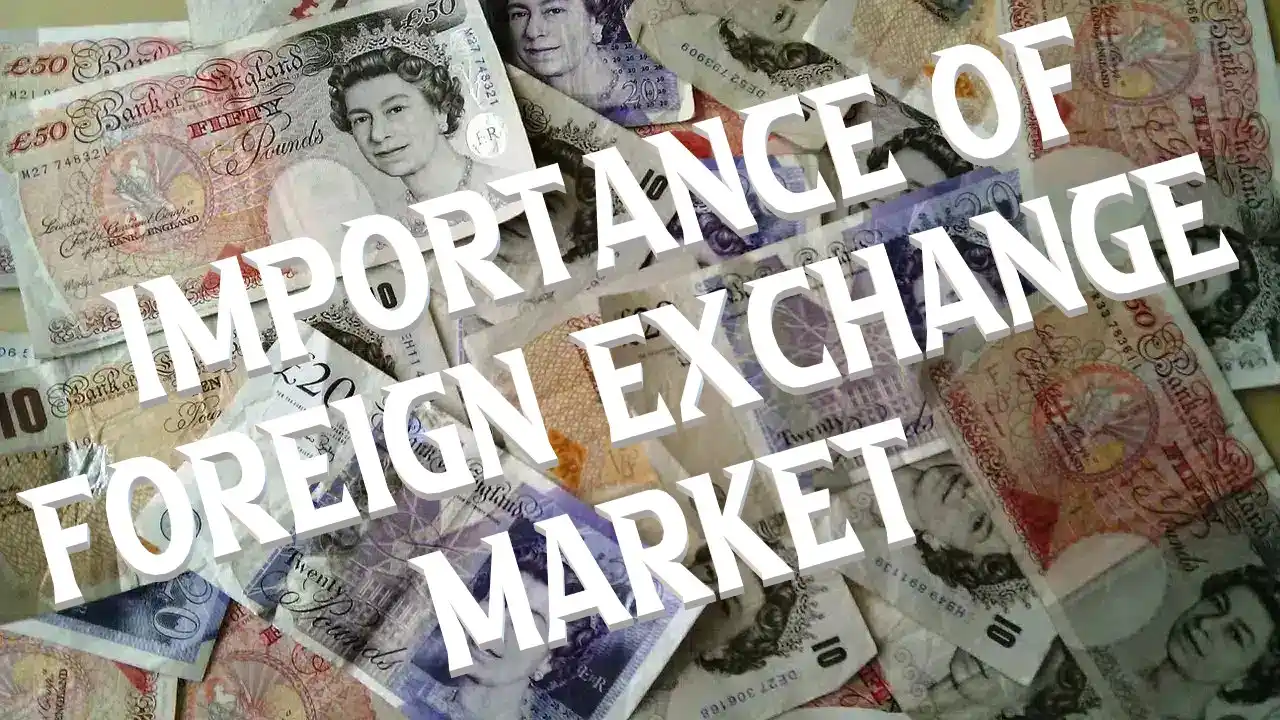People buy and sell currencies on currency exchanges. Forex is tradable around the clock. The FX market is the most important. Every day, trillion-dollar transactions take place. The most liquid market is foreign exchange. There are various traders at this market. Government, central banks, and commercial banks are all possible candidates. Although, institutional investors, Forex brokers, individuals, and corporations are all included. This topic explains importance of foreign exchange market in the detail.
We investigated real-world international interchange. People also make bets on the Forex market. People buy and sell currencies based on their forecasts. Currency discrepancies drive speculation. If investors believe a currency will gain in value, they will increase their investment. These investments will boost the worth of money.
Importance of Foreign Exchange Market
Forex is the most important and active financial market. Most people have no idea why. Forex is not the same as equity markets, which allow existing businesses to raise funds from investors. There are several features of foreign exchange market which you should be aware of it. This guide explains importance of foreign exchange market that affects the economy of a country.
Control Inflation
Foreign exchange reserves held by stable governments include large amounts of euro, US dollar, British pound, Japanese yen, Swiss franc, and Chinese renminbi. Reserves help to maintain economic stability. When an economy stabilizes, the central bank lowers interest rates.
This will deter foreign investors. Besides, if required, central banks will sell local currency and buy reserve money to keep the local currency weak. Exports will benefit from the weakening of the currency. More money and low interest rates encourage consumption. Economic growth as a result.
If inflation rises, the central bank will raise interest rates. Foreign investors will prefer to invest in their home currency. If necessary, the central bank will buy domestic currency and sell reserve currency in order to maintain the domestic currency strong (by purchasing the domestic currency and selling the reserve currency).
When cash flow is tight, businesses and individuals may cut back on spending. The economy will not become overheated. To ensure economic stability, central banks can boost or weaken the local currency in the foreign exchange market.
There would be no way to evaluate the value of one currency in another without the Forex market, and the international economy would collapse. Some countries would also engage in large-scale currency rate manipulation, further destabilizing the global economy.
International Trade
Foreign payments must be convert into local currency by exporters. Those who want to buy things from other countries must also convert their currency to US dollars. Large firms require the dollar to establish a branch, warehouse, or factory in another country. Currency exchange is essential for mergers and acquisitions.
A consistent and strong demand for currency against another will cause the price of one to rise relative to the other. If a country’s currency is worth more than its opposition, foreign investors will find it profitable to purchase their goods and sell them out, earning an additional profit on the difference.
Traveling Abroad
When traveling abroad, you will require local currency. Visiting the United States necessitates the use of US currency. The United Kingdom wants pounds. Foreign currencies can be exchange for rupees. This service is provided by banks, travel agencies, and currency merchants.
Exchange rates are included. Every transaction is costly. Exchange currency at a bank or travel agency. Moreover, banks provide better rates to loyal consumers. Airports are prohibitively expensive venues to exchange money.
Foreign exchange cards are also available to travelers. Prepaid foreign exchange cards It may handle a variety of currencies. This is more secure than cash. Foreign exchange is require for both international trade and your summer holiday.
Hedging
An exporter may not transport a product from another country right away. Buyers sign a letter of credit to assure payment. Exporters often deliver 45-60 days after contract terms. The local currency may strengthen or decrease in relation to the US dollar.
The exporter may not make as much money as he anticipated while quoting the ultimate buyer. An exporter may even incur losses. Exporters can secure a fixed exchange rate with a transactional bank. The bank will maintain its position and interests in the foreign exchange market.
In this market, riskier investors can hedge. Investors prefer safe assets such as the Japanese yen and Swiss franc when political tensions between two countries grow. These transactions would be slower without the FX market.
Settlements in Cash
To transmit money internationally, financial instruments are used (checks, demand droughts, letter of credit, foreign cash transfers, etc.). The amount credited to the recipient’s account is determined by Forex market exchange rates. This is true even if the transaction procedure involves many institutions.
When one country lends another for expansion, credit lines are usually given to project-related enterprises. For these instruments, the current FX market exchange rates are applied.
A country may have also purchased debt from another country (for example, US Treasury notes). A corporate or investor purchased a bond issued by a foreign company. The local currency value when redeemed is determined by Forex exchange rates.
Conclusion
The primary importance of foreign exchange market is that it is a global over-the-counter (OTC) market for currency comparison. This market is refer as Forex, and the currency market. People can purchase, sell, trade, and speculate on this market. Therefore, these markets are used by banks, foreign exchange dealers, commercial companies, central banks, investment management firms, hedge funds, retail foreign exchange dealers, and investors.






